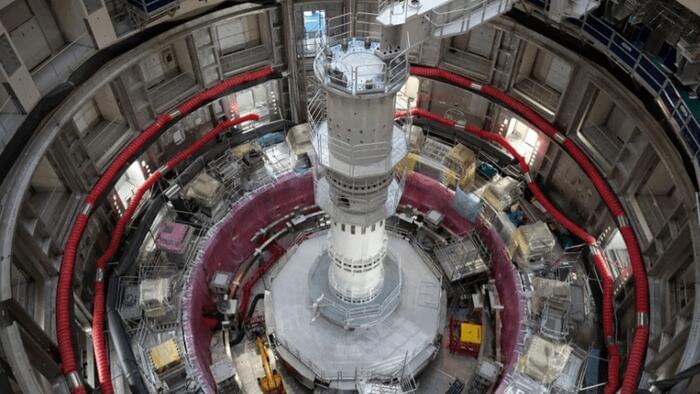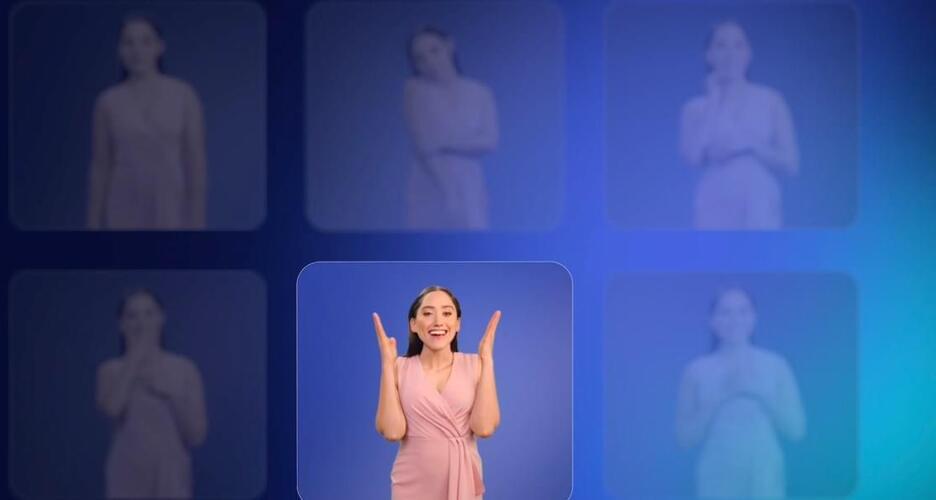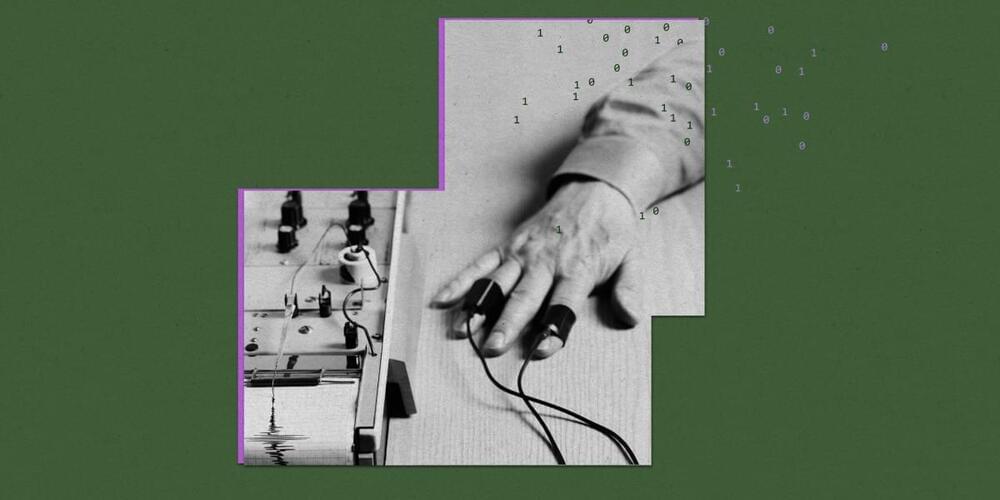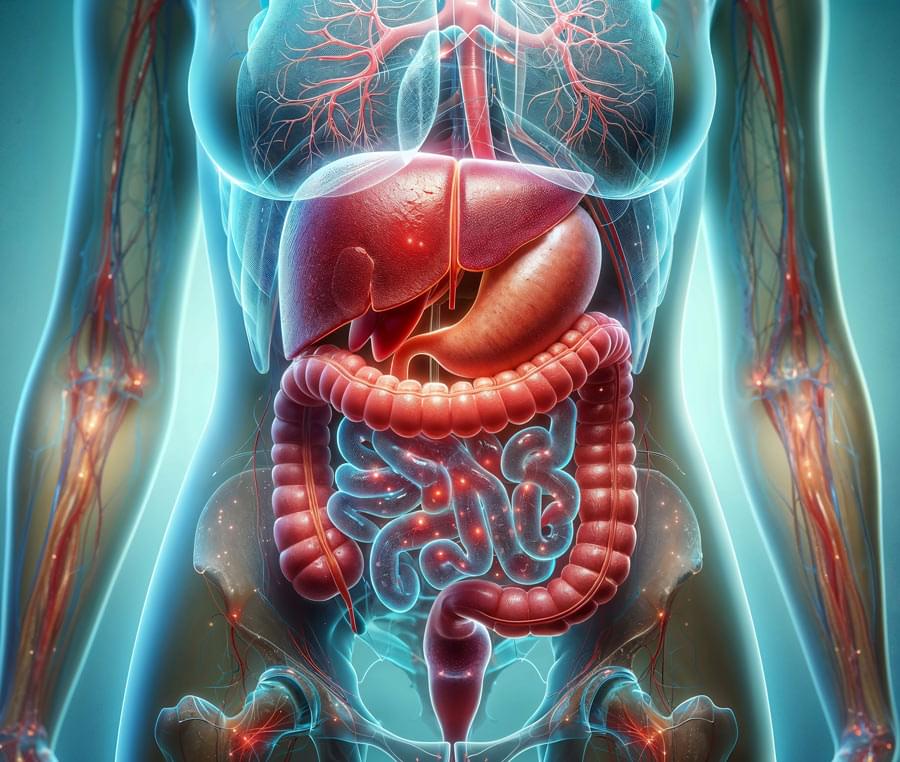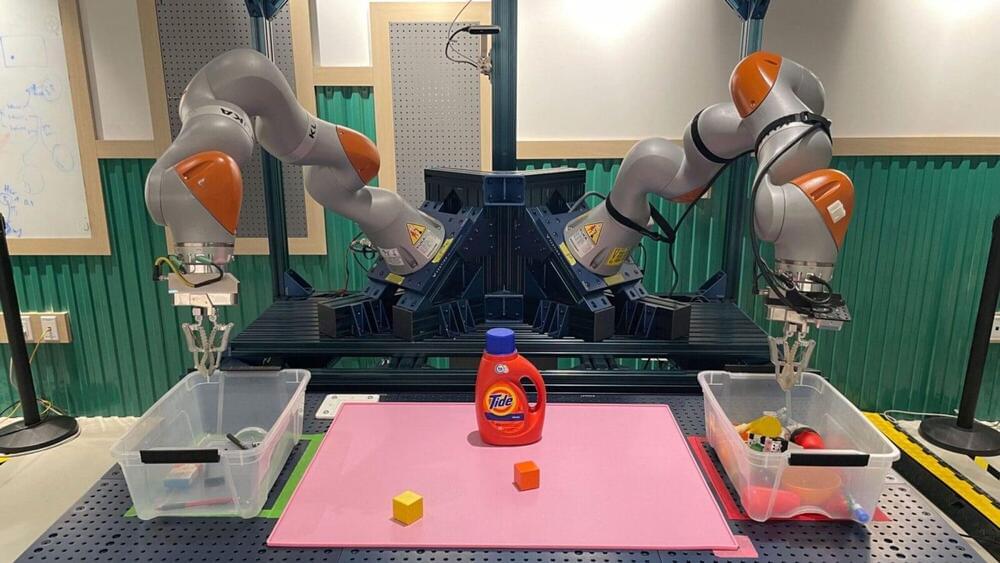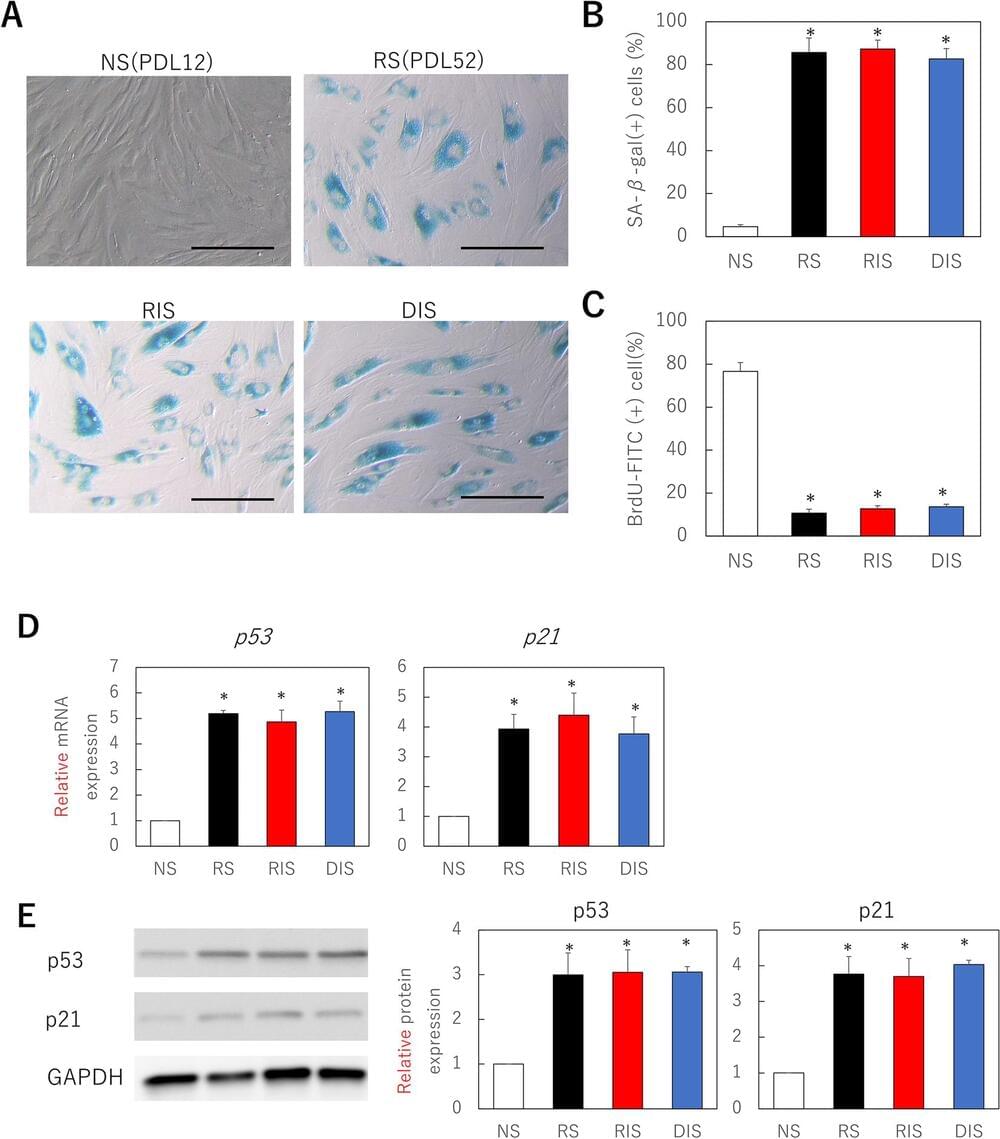Page 954
Jul 6, 2024
Synthesia’s hyperrealistic deepfakes will soon have full bodies
Posted by Saúl Morales Rodriguéz in category: futurism
Jul 6, 2024
AI lie detectors are better than humans at spotting lies
Posted by Saúl Morales Rodriguéz in category: robotics/AI
Jul 6, 2024
The Pentagon Is Trying to Build a Laser That Never Fails
Posted by Kelvin Dafiaghor in categories: military, quantum physics
Jul 6, 2024
RACER Speeds Into a Second Phase With Robotic Fleet Expansion and Another Experiment Success
Posted by Omuterema Akhahenda in categories: information science, robotics/AI, transportation

Robotic Autonomy in Complex Environments with Resiliency (RACER) program successfully tested autonomous movement on a new, much larger fleet vehicle – a significant step in scaling up the adaptability and capability of the underlying RACER algorithms.
The RACER Heavy Platform (RHP) vehicles are 12-ton, 20-foot-long, skid-steer tracked vehicles – similar in size to forthcoming robotic and optionally manned combat/fighting vehicles. The RHPs complement the 2-ton, 11-foot-long, Ackermann-steered, wheeled RACER Fleet Vehicles (RFVs) already in use.
Jul 6, 2024
The big C’s: Bile acids as carcinogens in colon cancer
Posted by Shubham Ghosh Roy in category: biotech/medical
Dr Carol Bernstein examines the role of increased bile acids in gastrointestinal cancers, including colon cancer.
Teaching robots to ask for help is key to making them safer and more efficient.
Engineers at Princeton University and Google have come up with a new way to teach robots to know when they don’t know. The technique involves quantifying the fuzziness of human language and using that measurement to tell robots when to ask for further directions. Telling a robot to pick up a bowl from a table with only one bowl is fairly clear. But telling a robot to pick up a bowl when there are five bowls on the table generates a much higher degree of uncertainty — and triggers the robot to ask for clarification.
Because tasks are typically more complex than a simple “pick up a bowl” command, the engineers use large language models (LLMs) — the technology behind tools such as ChatGPT — to gauge uncertainty in complex environments. LLMs are bringing robots powerful capabilities to follow human language, but LLM outputs are still frequently unreliable, said Anirudha Majumdar, an assistant professor of mechanical and aerospace engineering at Princeton and the senior author of a study outlining the new method.
Jul 6, 2024
High-profile lawsuit against Meta can be heard in Kenya, Nairobi court rules
Posted by Omuterema Akhahenda in category: neuroscience
Why is Facebook (Meta) harassing my account?
Decision on case of ex-Facebook moderator, who claims the work left him with PTSD, hailed as win for accountability of big tech in Africa.
Jul 5, 2024
Evolving Self-Assembling Neural Networks: From Spontaneous Activity to Experience-Dependent Learning
Posted by Cecile G. Tamura in category: robotics/AI
Erwan Plantec, Joachin W.Pedersen, Milton L.Montero, Eleni Nisioti, Sebastian Risi ITU Copenhagen 2024 https://arxiv.org/abs/2406.
OpenRead & Notes Taking.
Jul 5, 2024
Combined dasatinib and quercetin treatment contributes to skin rejuvenation through selective elimination of senescent cells in vitro and in vivo
Posted by Shubham Ghosh Roy in category: life extension
The skin’s protective functions are compromised over time by both endogenous and exogenous aging. Senescence is well-documented in skin phenotypes, such as wrinkling and sagging, a consequence of the senescence-associated secretory phenotype (SASP) that involves the accumulation of senescent fibroblasts, chronic inflammation, and collagen remodeling. Although therapeutic approaches for eliminating senescent cells from the skin are available, their efficacy remains unclear. Accordingly, we aimed to examine the effects of dasatinib in combination with quercetin (D + Q) on senescent human skin fibroblasts and aging human skin. Senescence was induced in human dermal fibroblasts (HDFs) using approaches such as long-term passaging, ionizing radiation, and doxorubicin treatment. The generated senescent cells were treated with D + Q or vehicle.
